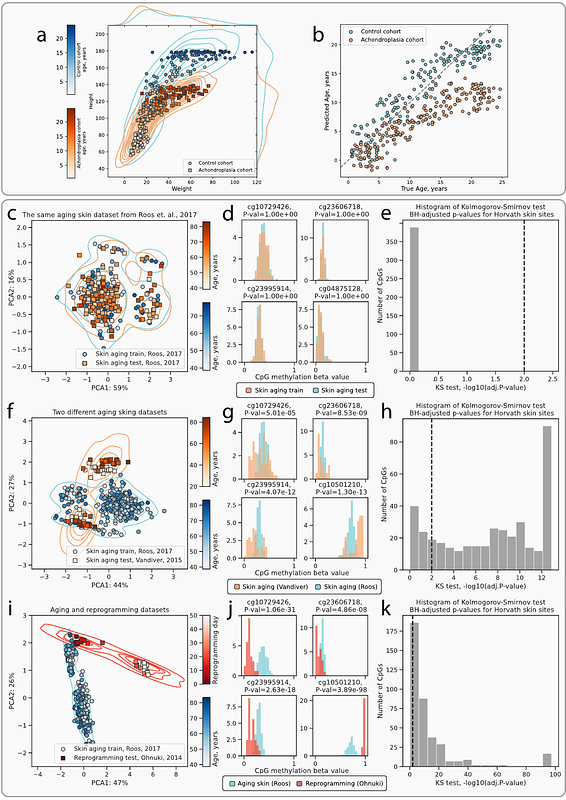Epistemic uncertainty challenges aging clock reliability in predicting rejuvenation effects

Epistemic uncertainty challenges aging clock reliability in predicting rejuvenation effects
Kriukov, D.; Kuzmina, E. A.; Efimov, E.; Dylov, D. V.; Khrameeva, E.
AbstractEpigenetic aging clocks have been widely used to validate rejuvenation effects during cellular reprogramming. However, these predictions are unfalsifiable, since the true biological age of reprogrammed cells remains inaccessible. We present a multifaceted analytical framework to consider rejuvenation predictions from the uncertainty perspective. We discover that DNA methylation profiles of reprogramming are not represented in the aging data used for clock training, which introduces high epistemic uncertainty in aging predictions. Moreover, predictions of different published clocks are poorly consistent with each other and suggest even zero or negative rejuvenation. We show that the high prediction uncertainty challenges the reliability of rejuvenation effects observed during in vitro reprogramming prior to pluripotency and throughout embryogenesis. Conversely, our method also reveals a significant age increase after in vivo reprogramming. We propose to include uncertainty estimation in future aging clocks to avoid the risk of misinterpreting the results of biological age prediction.